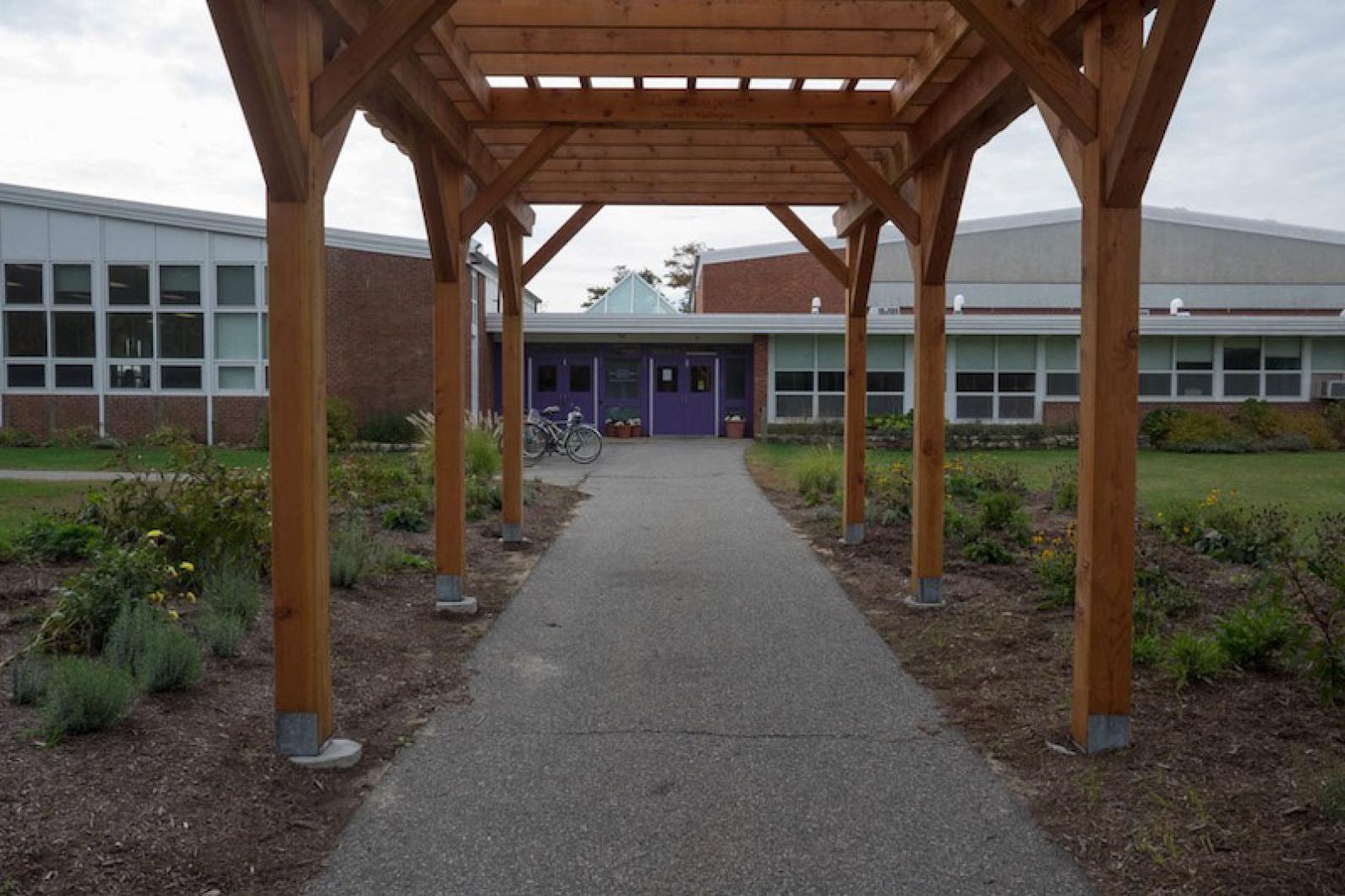Rising maintenance costs for the ailing facilities at the Martha’s Vineyard Regional High School will add more expense to the budget next year, school leaders learned this week. The $19.9 million proposed 2018 budget is a 6.68 per cent increase over last year. The regional high school district committee will vote on the budget next month.
At a public hearing Monday night, high school principal Sara Dingledy explained a two-pronged budget approach for the coming fiscal year, tackling long-deferred maintenance on school buildings and grounds, which will cost money, and tightening up in other areas, including staffing, which will save a little.
A short-term preventative maintenance plan developed this fall focuses on tackling projects on a small level, rather than the “break and then fix and replace mentality” the principal said, adding: “That will cost money because it includes working with vendors to make sure there is a scheduled maintenance program that they are coming to the building, that they are doing their checks, that they are ensuring things are in good working order to extend the life of a lot of the machinery that would be quiet expensive to replace.”
But Ms. Dingledy, who took the helm at the high school last summer, said significant deferred projects will need to be tackled in the coming year. They include exterior shingling, window repairs and replacements, parking lot paving and air conditioning work. Projects slated for the 2018 fiscal year and included in the operating budget add up to $391,000. The most expensive is $98,000 for hot water system repairs and modifications. A total of $40,000 is budgeted for athletic fields maintenance. “Investing in our grounds and in our building is a big goal for us,” Ms. Dingledy said. “There are some big things we need to start to tackle if were going to be responsible again about maintenance of the facility and building,” she also said. “Those are things we just can’t defer.”
Long-term plans for more extensive renovations at the high school, which has not seen an upgrade in some 20 years, are still in the early discussion stage. The school has applied to the Massachusetts School Building Authority grant program, which provides planning assistance and cost reimbursement for qualifying school renovation projects.
Meanwhile, other increases in the high school budget for the coming year are tied to contractual raises, increases in health insurance, special education residential care expenses and other post-employment benefits (OPEB). Funding for OPEB liability increased by $288,783 from last year to a total of $488,783 in the proposed budget.
She said staff attrition in two positions that will not be refilled will save approximately $200,000 in the budget. Instruction costs add up to about half of annual spending at the high school.
“We’re rethinking some staffing levels when we can, shifting staff from one department to another in ways that make sense, rather than just adding positions in places we are understaffed,” Ms. Dingledy told committee members. “So by encouraging additional certifications we’ll get some more flexibility out of staff and we’ll be able to use people in more creative ways.”
Other savings come from shifting some transportation costs to the superintendent’s budget, decreased utilities (except electricity) and decreased need for career and technical education equipment.
Though the budget is lean on discretionary spending, it protects key programs, including advance placement classes, career and technical education, alternative education classes and language programs, Ms. Dingledy said.
“A lot of our offerings here are important to preserve no matter what the enrollments are,” she said.
Tisbury finance director Jonathan Snyder asked if anything could be done to reduce the chance Tisbury voters will face a Proposition 2 1/2 override.
“I do know that the school’s budget becomes one line in town’s budget and this year, thanks in part to some additional students attending Tisbury, I believe this one line is going to push our whole budget over the two and a half limit,” he said.
Chuck Hodgkinson, a West Tisbury finance committee member, suggested a portion of the $488,000 budgeted for OPEB liability come from excess and deficiency funds instead of being put in the tax-assessed budget.
“We have a significant and growing population of senior citizens, many of which are on a fixed income,” he said. “I do not think they should pay for all of the past unfunded school staff retirement costs while on a fixed income themselves.”
School committee members agreed to take both concerns into consideration and discuss them at their next meeting, Dec. 5 at 7 p.m. in the library conference room.







Comments (3)
Comments
Comment policy »